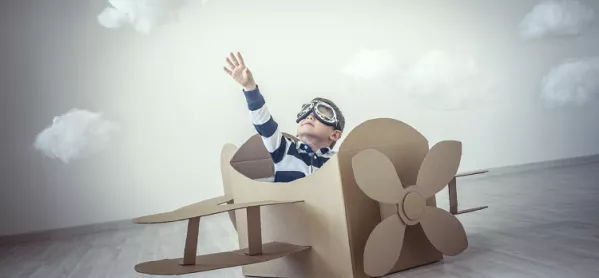If you think you know what play is, how effective it is for learning and when it should be used in schools, Dr Sara Baker (@SaraBCam) thinks you might need to take a second look.
“I don’t think you can make any big pronouncement about play. The research into play is budding and growing, but there is no solid research that has been replicated in different contexts and so on, it is a bit patchy,” she explains on this week’s episode of Tes Podagogy (listen below).
New ideas about play
Baker is trying to help change that with her work at Cambridge’s Play in Education, Development and Learning (PEDAL) Centre. She conducts research with her colleagues into the use of play in schools and believes that we might have been getting it wrong.
“I would say, if anything, children need more structure when they are younger…[we] should be releasing the constraints as the child gets older - the more the brain can make sense of the world on its own, the more playing alongside can happen and the less direction they should need. I realise that is a big theoretical question, but it is interesting to consider that.”
Linking play to age groups
Over the course of our interview, she raises many more important questions for teachers, including EYFS to Year 1 transition, how play is so difficult to define, why teaching needs to match stages of cognitive development and also why teachers need to recognise the knowledge children already possess.
“It is not a blank slate - you cannot just throw a load of ideas at a learner and they will soak them up and that’s it - students come with lots of constraints, strengths, all these things,” she says.
You can listen for free by downloading the podcast from iTunes or listening below.




